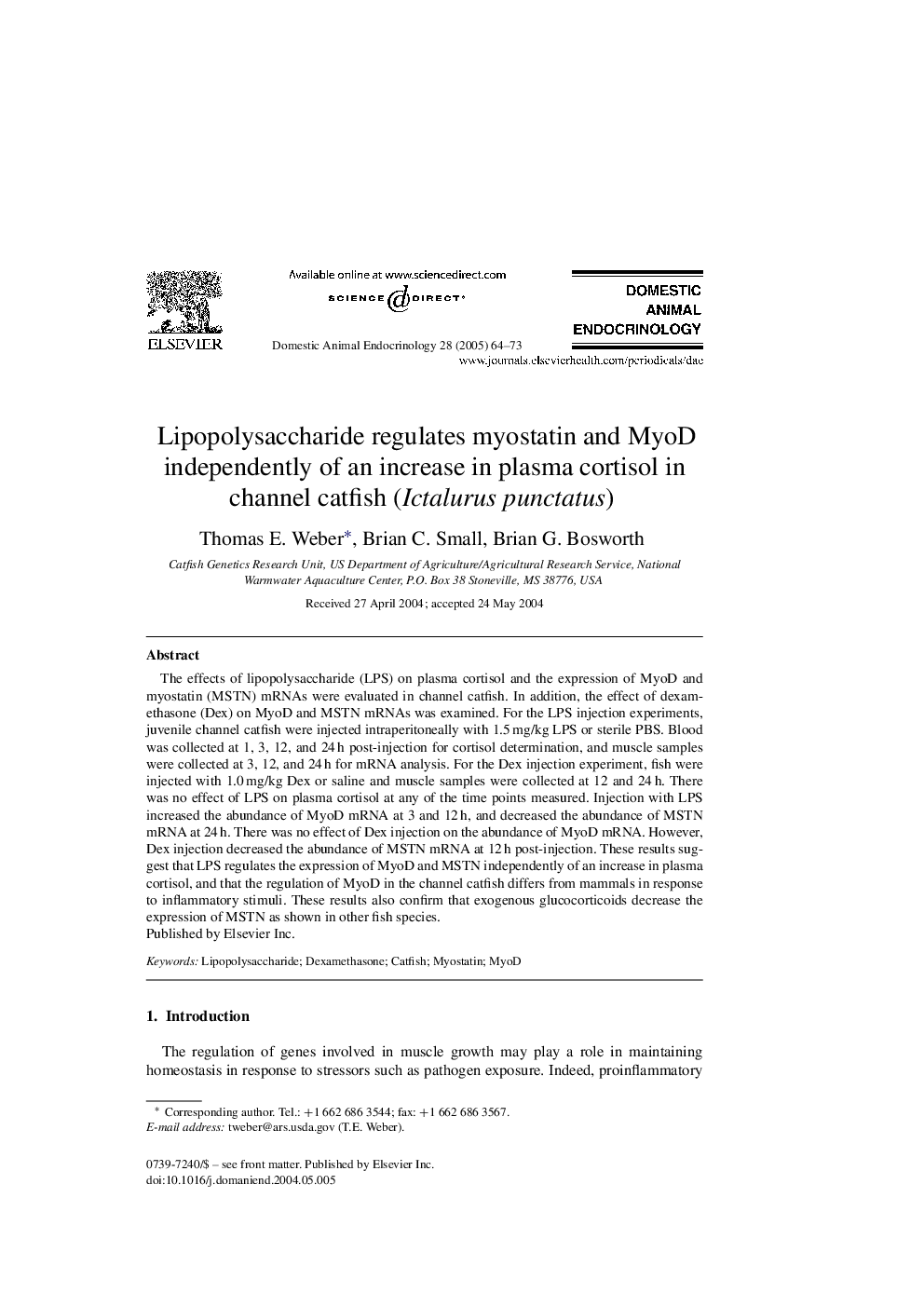| Article ID | Journal | Published Year | Pages | File Type |
|---|---|---|---|---|
| 8967251 | Domestic Animal Endocrinology | 2005 | 10 Pages |
Abstract
The effects of lipopolysaccharide (LPS) on plasma cortisol and the expression of MyoD and myostatin (MSTN) mRNAs were evaluated in channel catfish. In addition, the effect of dexamethasone (Dex) on MyoD and MSTN mRNAs was examined. For the LPS injection experiments, juvenile channel catfish were injected intraperitoneally with 1.5Â mg/kg LPS or sterile PBS. Blood was collected at 1, 3, 12, and 24Â h post-injection for cortisol determination, and muscle samples were collected at 3, 12, and 24Â h for mRNA analysis. For the Dex injection experiment, fish were injected with 1.0Â mg/kg Dex or saline and muscle samples were collected at 12 and 24Â h. There was no effect of LPS on plasma cortisol at any of the time points measured. Injection with LPS increased the abundance of MyoD mRNA at 3 and 12Â h, and decreased the abundance of MSTN mRNA at 24Â h. There was no effect of Dex injection on the abundance of MyoD mRNA. However, Dex injection decreased the abundance of MSTN mRNA at 12Â h post-injection. These results suggest that LPS regulates the expression of MyoD and MSTN independently of an increase in plasma cortisol, and that the regulation of MyoD in the channel catfish differs from mammals in response to inflammatory stimuli. These results also confirm that exogenous glucocorticoids decrease the expression of MSTN as shown in other fish species.
Related Topics
Life Sciences
Agricultural and Biological Sciences
Animal Science and Zoology
Authors
Thomas E. Weber, Brian C. Small, Brian G. Bosworth,
